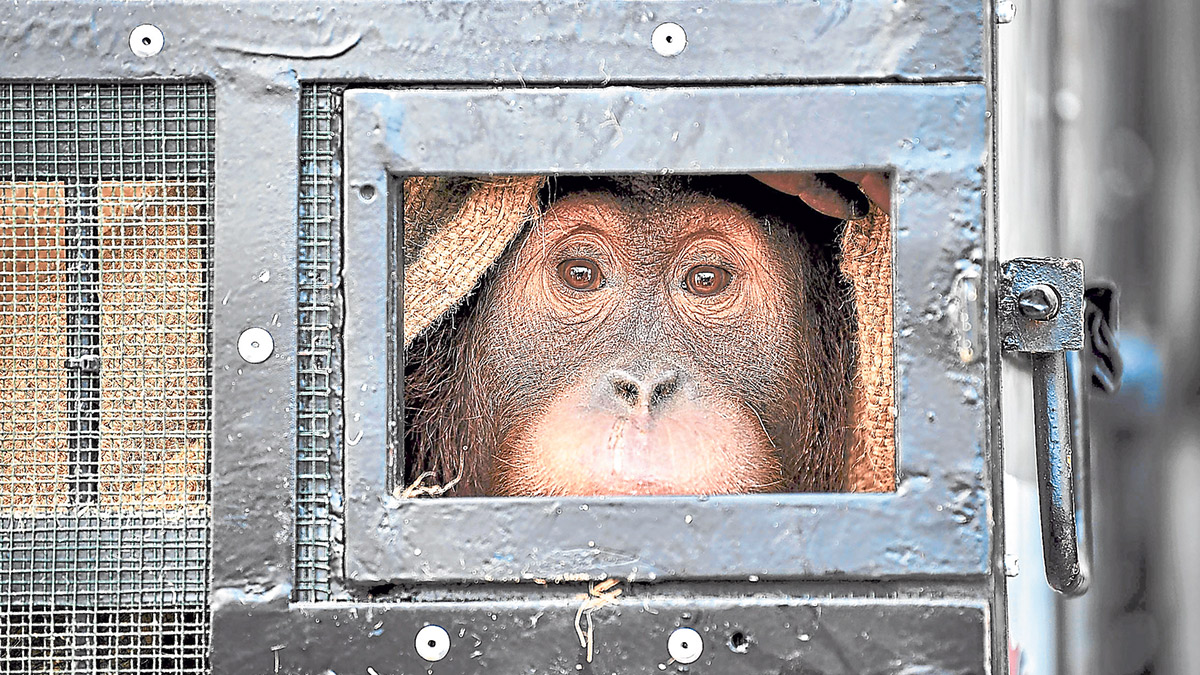Gone with the wild

HOW ARE THE ANIMALS TREATED? Travelers are advised to conduct research before engaging a wildlife operator, making sure it is transparent in its funding, conservation and preservation activities.

WTTC mentions that wildlife tourism supports the protection of endangered species. When travelers choose to support reputable initiatives and responsible providers, they are actually helping generate the income needed for continuous conservation work.
Governments are encouraged to invest in conservation when the demand for conservation and responsible tourism increases.
Besides that, necessary income can be generated for responsible wildlife tourism through storytelling (it can be as easy as posting on social media), and it helps reprioritize wildlife tourism over illegal wildlife trade and crime, which has become one of the world’s largest and most profitable crime sectors.
The International Criminal Police Organization revealed in November 2023 that the black market for illegal wildlife products is now worth up to $20 billion per annum and it will continue to grow even as it pushes many species to the brink of extinction.
Article continues after this advertisementMeanwhile, a report by World Bank states that wildlife tourism is a powerful tool countries can leverage to grow and diversify their economies while protecting their biodiversity and meeting several United Nations Sustainable Development Goals, engage tourists in wildlife conservation, and injecting money into local communities living closest to wildlife.
Article continues after this advertisementEmphasizing that collective efforts are essential to ensure its long-term sustainability as the sector is in the midst of tremendous growth, the United Nations World Tourism Organization says sustainable tourism—wildlife tourism included—has the capacity to support job creation, promote inclusive social integration, protect natural and cultural heritage, conserve biodiversity, generate sustainable livelihoods, and improve human well-being when it is responsibly planned and managed.
Cruelty we don’t see
Wildlife tourism can bring substantial benefits, but it also poses risks.
There have been many instances of captive animals being exploited, starved, severely malnourished, kept in inadequate and dire conditions, subjected to stressful, unnatural behaviors, and more.
Does the Tiger Temple debacle in Thailand ring a bell? Time reported that over 500 officers from Thailand’s Department of National Parks (DNP) raided the Tiger Temple and uncovered 40 dead tiger cubs frozen in a freezer of the now-shuttered attraction that was managed by monks.
Another 20 tiger cub carcasses kept in jars of formaldehyde were uncovered. Two adult tiger pelts were also found, along with the body of a bear and around 1,500 tiger skin amulets, plus other trinkets apparently made of tiger teeth.
The DNP confiscated a total of 147 live tigers from the temple. According to the BBC, the tigers were subsequently held at two breeding stations in a nearby province. It was reported that in 2019, only 86 from the original 147 had survived in captivity and even more had passed since then.
The World Animal Protection (WAP) organization warns that travelers need to be cautious toward wildlife greenwashing. Many well-intentioned holidaymakers choose captive animal “experiences,” unaware of the harm they do to the animals involved and the potential damage to the local ecosystem and its communities.
Washing elephants, swimming with dolphins or hand-feeding primates can appear harmless—or even beneficial—at first glance. Such interactive activities are often advertised as being either educational or conservationist. However, they are neither, as wild animals are required to be kept in captivity and trained to behave in ways that are not natural for them, which are undoubtedly exploitative.
Suffice to say, unregulated wildlife tourism can lead to exploitation, habitat degradation, wildlife disturbance and increased pollution from improper waste management, which in turn harms mother nature’s fragile ecosystems, fragments habitats and disrupts the natural behavior of animals. Ultimately, all these lead to biodiversity loss.
Mindful thoughts, mindful actions
Responsible and sustainable travel demands that people travel consciously. Ecotourism is a way for humans to preserve the natural world while learning about it. It allows for a kinder, more thoughtful and more sustainable way for people to experience wildlife tourism while engaging in conservation, preservation and protection.
It is up to travelers going for a wildlife adventure to do the mindful thing, beginning with some critical thinking and asking the right questions—kicking off with a simple “is this ethical?”
If the wildlife experience has no effect or has a positive effect on the individual animals involved, then it can be considered ethical.
Travelers should not take claims at face value. Instead, conduct some research into the wildlife attraction extensively before considering a visit.
While the most common thing to do on such occasions is to dive into other travelers’ reviews, Oxford University’s Wildlife Conservation Research Unit (WildCRU) cautions that travelers should approach them with a critical eye. WildCRU has discovered that 80 percent of people who leave reviews, such as those on TripAdvisor, were unaware of cruelty as an issue within the animal tourism industry.
The WAP has repeatedly warned that if a traveler can ride, hug or take a selfie with a wild animal, chances are the venue is cruel.
Similarly, if any animal is expected to behave in a way that isn’t natural to them or causes them any kind of stress (even from too many people observing them from a distance), then the experience isn’t ethical and should be avoided.
In addition to opting for responsible operators who are transparent in their conservation and preservation programs, funding and operations as a whole, travelers can leverage travel agents to check the attractions’ policies on wildlife tourism and ethical behavior.
Other seemingly simple yet mindful gestures travelers can do to make an impact include respecting every animal as an individual, not disrupting their peaceful time with flash photography, purchasing the right type of souvenirs, as well as recording and reporting unethical wildlife attractions.
Ultimately, travelers—like voters in an election—have the ability to make positive changes that can leave lasting impacts.
Quoting Sir David Attenborough: “Never before have we had such an awareness of what we are doing to the planet, and never before have we had the power to do something about that.”
*This story and photo first appeared on Feb. 28, 2024, in The Star, the Malaysian publication that is part of the Asia Sustainability Impact Consortium, which also includes the Philippine Daily Inquirer and Kompas Gramedia of Indonesia as founding members.